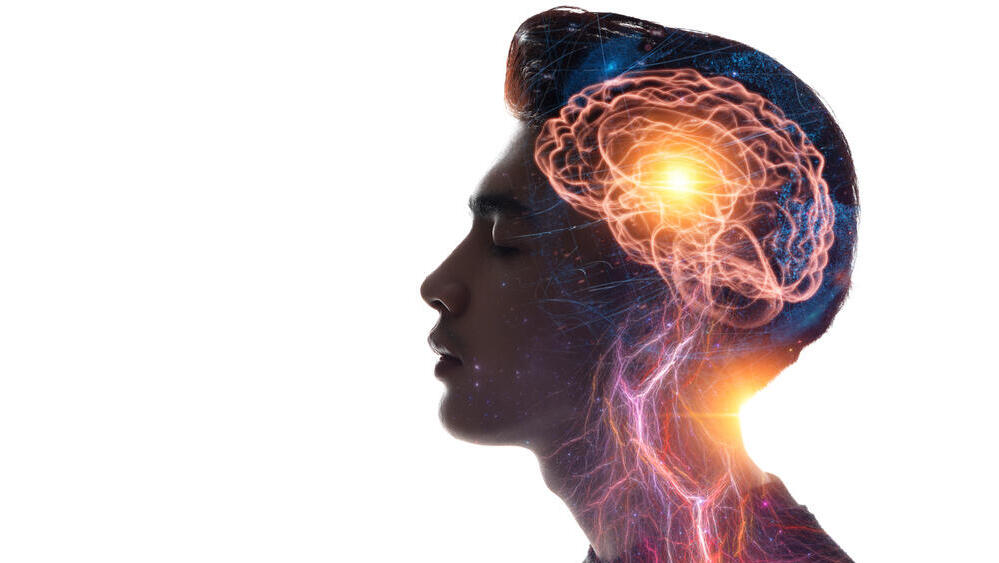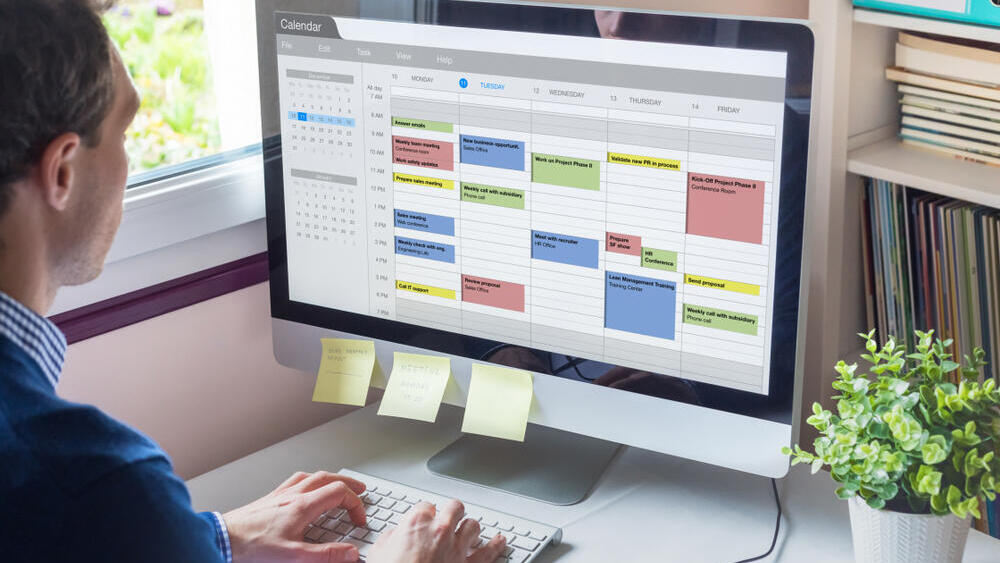Our memory is one of the most fascinating and complex phenomena in brain function. Unlike a computer that captures and stores information, the brain's memory operates through a complex network of sensory inputs received in different regions of the brain that communicate with each other and create the information that we store and retrieve.
More stories:
Memory is essential to us not only for learning. In fact, it is one of the most important elements in our daily functioning and in human existence as a whole. We need memory "in order to be aware and understand our perception of self woven in time and space," explains Dr. Lior Ungar, a neurosurgeon specialist from the Sheba Medical Center.
"Memory is our rock, the point of reference for answers to the question of who I am, what I am, where I am located, and what my interactions are in space. Without this sophisticated memory, we would not be able to do so. Evolutionarily, in order to take another step forward, we needed this developed memory that anchors us within ourselves," he says.
The memory is divided into two main types: short-term memory and long-term memory. Short-term memory mainly includes "working memory," while long-term memory includes two main types: explicit memory and implicit memory.
Explicit memory
Explicit memory is characterized by the ability to easily describe the knowledge stored inside it using words. There are three areas of the brain involved in explicit memory: the hippocampus, neocortex and amygdala. The hippocampus, located in the temporal lobe of the brain, is where episodic memories are formed – autobiographical memories of specific events in our lives, such as the show we saw with the kids last week.
This type of memory was discovered in 1953 when a patient named Henry Molaison underwent a neurosurgical procedure in which the hippocampus region was removed to treat his epilepsy. He did recover from the disease and lived another 55 healthy years, but after the surgery he could only create episodic memories that lasted for a few minutes and was unable to store new information permanently.
However, he was still able to improve his performance in various motor tasks, even those he had not encountered before. This indicated that although the hippocampus, which was removed in his surgery, is crucial for memory, it is not the place where long-term stable memories are stored. The hippocampus also does not store information about motor learning. Today it is known that our motor skills are preserved in other areas of the brain, such as the basal ganglia and the cerebellum.
Another area that is involved in episodic memory is the neocortex, the largest part of the brain's cortex, the outer surface of the brain. In humans, the neocortex is involved in higher functions such as sensory perception, creating motor commands, spatial thinking and language. Over time, information from certain memories stored temporarily in the hippocampus can be transferred to the neocortex as general knowledge – for example, the knowledge that caffeine is a stimulant. Researchers believe that communication between the hippocampus and the neocortex occurs mainly while we sleep.
The amygdala, a structure shaped like an almond in the temporal lobe of the brain, attributes emotional significance to memories. This is especially important because it is difficult to forget strong emotional memories, such as those associated with shame, joy, love or grief. The consolidation of these memories indicates that interactions between the amygdala, the hippocampus, and the neocortex are crucial in determining the stability of memory – that is, how efficiently it is stored over time.
There is an additional aspect to the involvement of the amygdala in memory. The amygdala not only changes the strength and emotional content of memories, but also plays a key role in creating new memories that teach us to fear in order to avoid danger. The amygdala is also involved in post-traumatic stress disorder (PTSD).
Implicit memory
While explicit memory refers to "what" we remember, implicit memory refers to "how" we remember and contains knowledge related to various motor and cognitive skills. There are two areas of the brain involved in its creation: the basal ganglia and the cerebellum.
The basal ganglia are deep brain structures involved in a wide range of processes, such as emotion, reward processing, habit formation, movement and learning. They are particularly involved in coordinating the timing of motor activity required during activities such as playing music, dancing or playing basketball. The basal ganglia are the most affected areas in Parkinson's disease, and this is evident in the impaired movements of Parkinson's patients.
The cerebellum, a separate structure located at the base of the brain, is the most important in controlling fine motor skills, such as using eating utensils or pressing piano keys with delicacy. An example of motor learning in the cerebellum is the vestibulo-ocular reflex, which allows our eyes to stay fixed on an object while we turn our head.
Working memory
In our daily lives, we perform countless intuitive actions that require quick retrieval from our brain: stopping a car in danger, drinking water when we're thirsty, or smiling at someone familiar who passes by. Retrieving information from long-term memory is a lengthy process that requires information processing and does not allow us to perform the quick tasks required in daily life. This is where working memory comes in, a small and accessible collection of information that allows us to function quickly in different situations - making decisions, thinking, and performing countless tasks.
10 tips on how to improve memory
To repeat, memory is one of the most magical and complex phenomena in our brain. Thousands of studies have been conducted and are still being conducted in an attempt to trace the mysteries of brain activity, and some of them have yielded quite a few conclusions. Maintaining a healthy lifestyle affects all organs of the body, including our thinking organ. But also, the method of learning is important and may improve our ability to remember. We have collected the best tips published in medical literature in recent years that may help you to sharpen and remember better.
1. Maintain a healthy lifestyle
Our brain is the organ that is most sensitive to lack of oxygen. For example, deprivation of oxygen for eight seconds will cause the body to "collapse" into a balanced shape; in other words, to pass out. Oxygen deprivation for four minutes will cause brain death. All the factors that interfere with the normal flow of oxygen in the blood vessels to the brain will also affect your memory. Physical activity, proper nutrition, maintaining healthy levels of fats and sugar, keeping blood pressure within normal limits, avoiding smoking and reducing alcohol consumption – all of these will improve brain function and memory.
2. Monitor your medical condition
If you have been experiencing sleep and learning problems for some time, consult your family doctor, who may refer you for various tests. Many conditions can negatively affect memory, such as iron and vitamin D deficiency, celiac disease, disorders in the function of the pineal gland, inflammatory conditions and chronic diseases.
3. Sleep well
Yes, it's clear: In the days ahead of an important event or exam, stress increases and with it comes sleepless nights. But sleep is important not only because of fatigue, but also because, during sleep, countless important processes occur in our brains, including those related to sleep and memory. Numerous studies have shown that students who sleep less before an exam perform worse and make more mistakes. Studying into the night, especially before an exam, is not only ineffective for most people, but also negatively impacts performance.
4. Stay calm
Stress is one of the main factors that contribute to memory problems. During periods of explicit stress, among other things, the hormone cortisol interferes with our ability to sleep and learn, while also impairing nerve transmitters such as dopamine that are important for concentration and sleep. Pressure not only prevents us from learning, but also from recalling information. If you are unable to overcome anxiety, try different techniques in complementary medicine, talk to a counselor or psychologist, or consult with a family doctor who can guide you to a proper emotional and mental state.
5. Stay organized
Our brain works in patterns and compartments, and the more organized the information is, the better it will be stored in the brain. Some people find it easy to remember vast amounts of material by dividing it into tables, while others prefer to summarize long texts themselves, and some are satisfied with marking the material in the book and going over it. In any case, it takes a long time to find the right organization method for you and your brain. Try different methods of organizing information and find out which one works best for you.
6. Write things down
It turns out that one of the most effective methods for many people is the ancient way – writing by hand. Studies have found that handwriting is more effective than listening and even typing on a computer. Writing requires the activation of the motor center of the brain and the attention and memory centers, which affect the reception and storage of information. Studies have shown that students who wrote by hand or on a board were able to remember more than those who only listened or typed up the lecture or material.
7. Say things out loud
Studies have shown that the dual action of speaking and listening helps with long-term memory retention. The effect is apparently due to the repetitive influence of the information, important for revision and memory, and the activation of the linguistic system that integrates different areas of the brain that affect memory. Again, much remains hidden, but experience proves that it simply works.
8. Review things over and over
Actors know this well: rehearsals – the more the better – help with memorization. For example, there are actors who are able to memorize texts and perform in several shows simultaneously. The reason for this is that when texts are repeated again and again, sometimes for months, the material is stored in long-term memory.
9. Use visual tools
Maps, graphs, illustrations and images can be helpful for learning. They simplify the information and facilitate understanding and memory and, later, in a very critical element during exams: retrieving the information. It turns out that activation of visual areas of the brain, along with other areas that are involved in information processing, assists in storing the information in a better way and retrieving it when needed.
10. Create strange associations
Medical students know this well: lists of dozens of names and terms that make no sense. The way for doctors to remember them is to create strange and funny associations. And the stranger they are, the better they will be remembered. Quickly create visual elements from the boring and dull list, and even link them to other senses - such as smell and sound. All of these will help you remember the material better and over time, and retrieve it easily.







